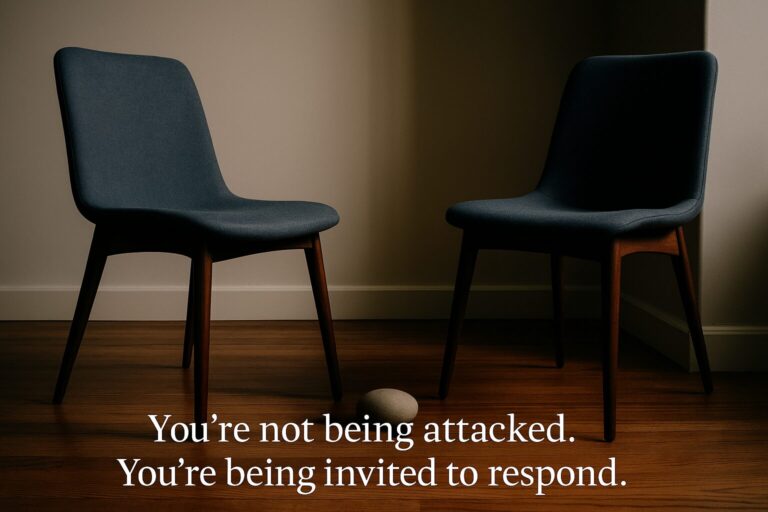Let’s be honest—when we think about what motivates people, we tend to focus on things like getting ahead, falling in love, staying healthy, or protecting ourselves. But researchers around the world are discovering something surprising: when it really comes down to it, family is what drives us most.
A massive new study from Arizona State University asked over 7,000 people in 27 different countries what really matters most in their lives. The results? Across the board—whether people lived in the U.S., South Korea, Germany, or Brazil—family came first.
What Really Matters
Participants were asked to rank things like: • Staying healthy • Making friends • Being accepted by others • Getting status and respect • Finding a new partner • Staying close to a current partner • Helping their kids or relatives
Over and over again, the top answers were about family—caring for children, staying close to loved ones, and maintaining strong relationships with parents or siblings. Even in individualistic cultures like the U.S., where independence is prized, family still won out.
Surprisingly, looking for a new romantic or sexual partner came in last. It turns out, chasing new love doesn’t make people nearly as happy as staying connected to those they already care about.
“Everyone thinks dating and attraction are the big motivators,” one of the lead researchers, Ahra Ko, explained. “But in every culture we studied, people rated family as far more important.”
Even single people—who you might assume would be more focused on finding a partner—rated family as more important than romance.
Why This Matters in Relationships
This study also helps explain why romantic relationships can get tricky when new partners don’t fit in well with someone’s family. When there’s tension between a long-standing family and a new relationship, the family usually wins out. That can lead to relationship struggles or even breakups—especially if a new partner feels like an outsider.
As relationship expert Dr. Douglas Kenrick put it:
“Studying attraction is easy and sexy, but people’s everyday interests are actually more focused on something more wholesome—family values. Everybody cares about their family and loved ones the most, which, surprisingly, hasn’t been as carefully studied as a motivator of human behavior.
People might think they will be happy with numerous sexual partners, but really they are happiest taking care of the people they already have”
And perhaps that’s why the success rate for American step-families is so poor. Learn what makes blended families work
And perhaps that’s why the success rate for American blended families is so poor. Learn what makes blended families work→.
So What Do We Do With This?
This isn’t just interesting trivia for psychologists. It matters deeply for real couples in the real world.
In couples therapy, we often talk about things like trust, communication, and healing. But this research adds something new to the conversation: the idea that building a strong “we” with your partner also means understanding how family fits into the picture.
One couple I worked with—Roxanne and Carl—really brought this to life. They had both gone through painful divorces. They’d met while having an affair, but were now trying to make it work long-term. They loved each other, were committed, and even worked through infidelity in their own relationship.
But despite their progress, they were stuck. Why? Because they still lived like two separate family units under one roof—each with their own kids, their own routines, their own emotional walls.
Roxanne once said, “I feel like I’m just Carl’s girlfriend, not part of his family.” And Carl didn’t even realize how deep that hurt went.
They both agreed that family mattered. But they were still learning how to build a new one together.
How the study was designed
This study was huge! More than 7000 people from over 25 countries were surveyed. One of the challenges in conducting cross-cultural social science research is weighing the differences between individualistic and collectivist cultures.
Cultures are typically divided into two frames of reference: collectivist and individualist. Individualist cultures are synonymous with the “West.” Cultures such as the United States and Western Europe, subordinate group goals to emphasize and celebrate personal achievement. This often results in “competition” being extolled as a virtue.
On the other hand, Collectivist cultures, such as those of Japan, China, or South Korea, emphasize group goals above any particular individual needs, preferences, or desires.
Collectivism and individualism are deeply embedded in cultural assumptions. We accept our culture’s values without question. Both collectivist and individualistic cultures have their advantages and disadvantages. Individualist cultures are more susceptible to loneliness, and collectivist cultures can often foster groupthink and may stifle individual initiative.
However, it is a significant finding that the importance of family was most important in both collectivist and individualist cultures.
The Big Takeaway
This new research tells us that family—however we define it—is central to our sense of meaning, security, and happiness. That’s true whether we were raised in a culture that prizes independence or one that celebrates group connection.
And it also tells us something else: when we’re building new relationships, especially after loss, divorce, or big transitions, we need to honor the pull of the past and the promise of the future.
Good couples therapy helps people navigate that space—between what already feels like family, and what could become it.
Because in the end, we’re not just looking for love. We’re looking for home.
⸻
Want to learn how to create a stronger sense of “we” in your relationship—without erasing the family ties that already matter?
Our couples therapy intensives help new and blended families build lasting bonds. Schedule a free consultation →







